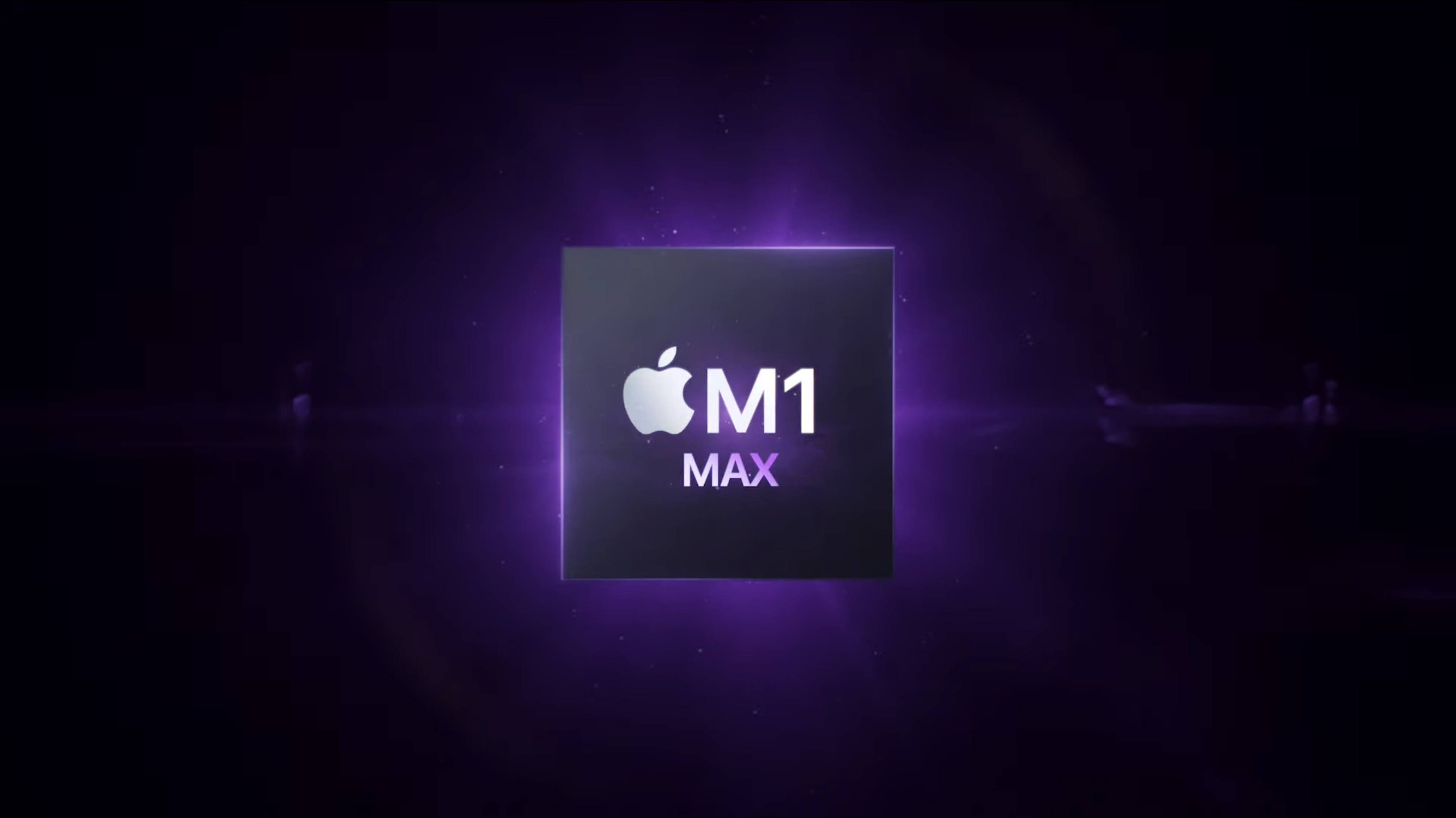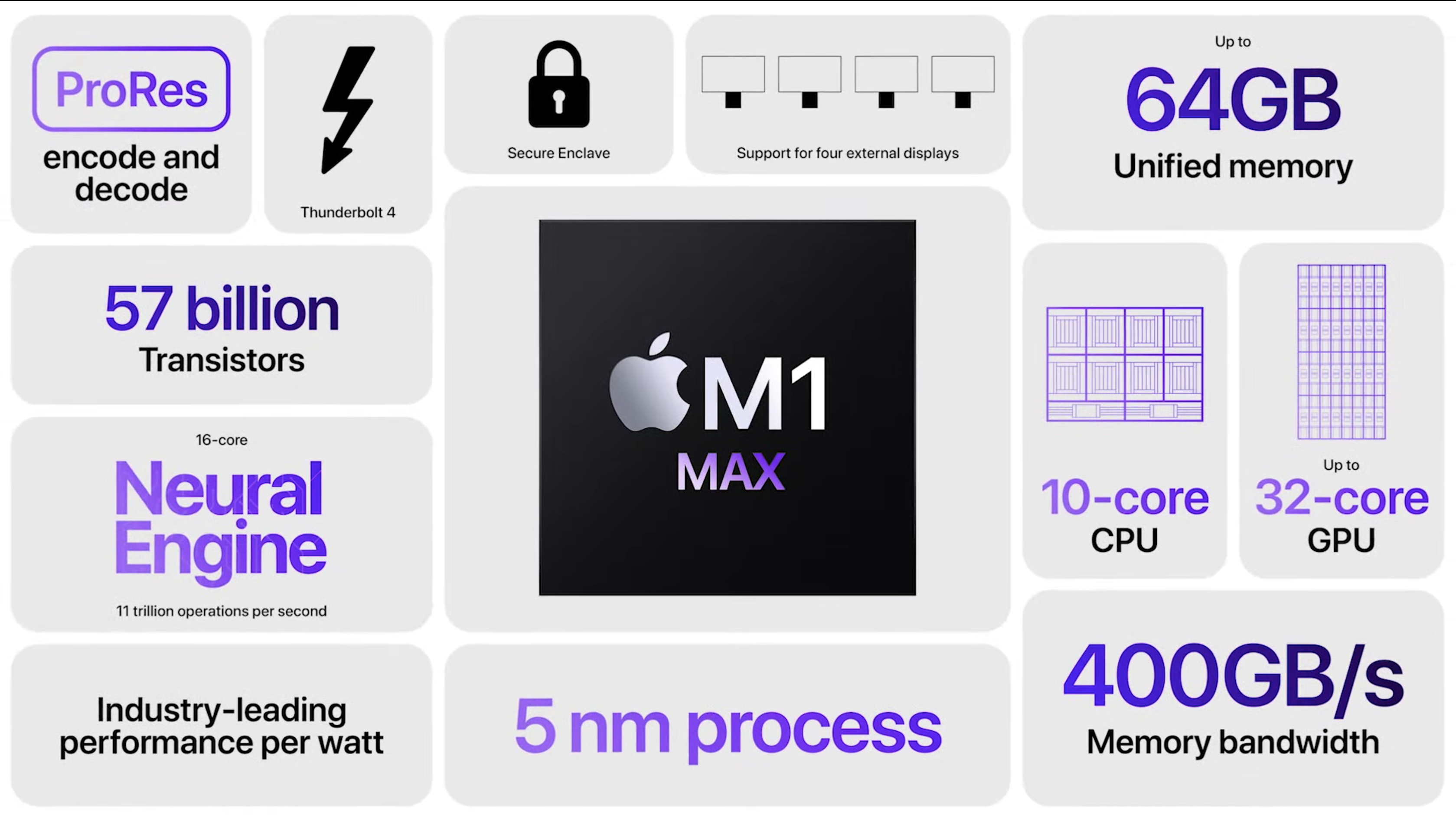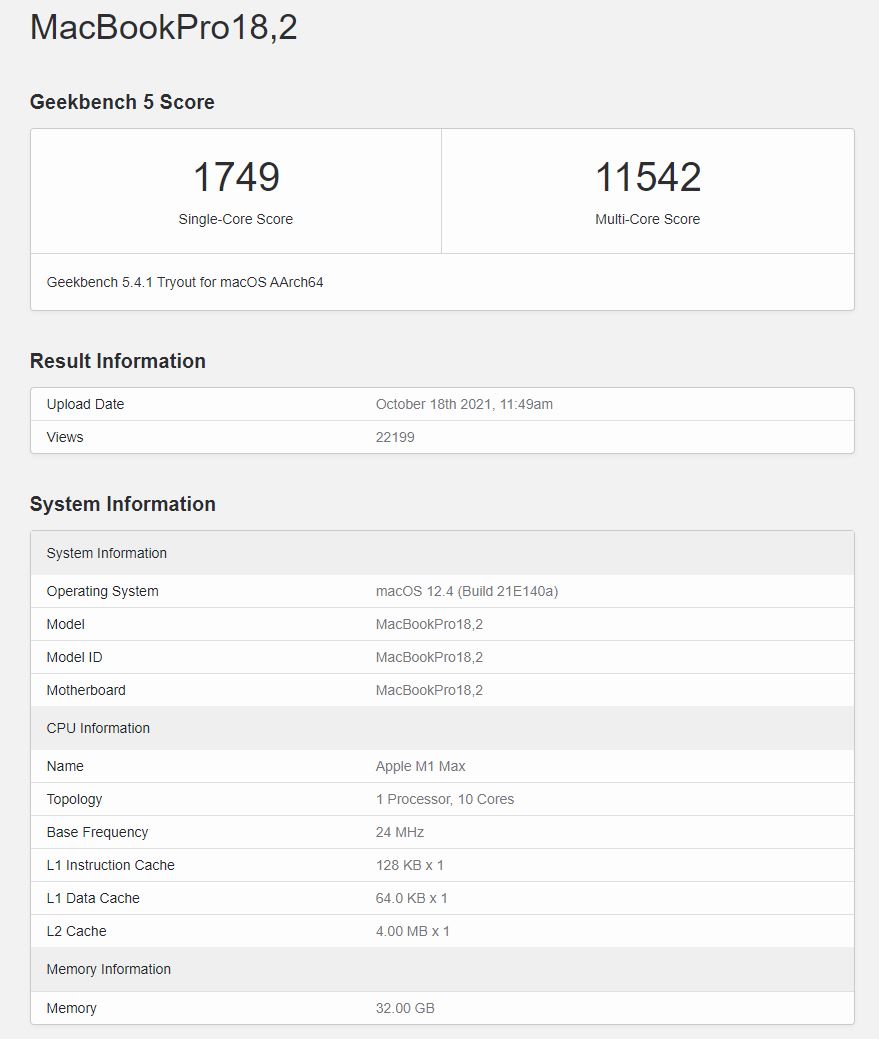MacBook Pro M1 Max first benchmarks allegedly leak — here's the results

Apple revealed new M1 Pro and M1 Max chips yesterday (Oct. 18) during an Unleashed event dedicated to touting the features of its new 14-inch MacBook Pro 2021 and 16-inch MacBook Pro 2021.
The M1 Pro and M1 Max earned a lot of attention during the show because they appear to be much more powerful versions of Apple's M1 chip, which has already blown us away with its performance in the 13-inch MacBook Pro M1, the MacBook Air M1 and the Mac Mini M1.
These two new pieces of Apple silicon debut in the new MacBook Pros launching next week (October 26), and now it appears we've gotten our first taste of how well they perform thanks to some alleged benchmark results for the M1 Max published on Geekbench.
- How to order MacBook Pro 2021 — 14-inch and 16-inch wait times
- A VPN for Mac is a quick and easy way to cover your tracks online
- Plus: How to install Windows 11 right now — and avoid the wait
This is a big deal because the M1 Max is a more powerful version of the M1 Pro, which is the default chip in the new MacBook Pros and is itself a more powerful version of the original M1. When you compare the M1 Pro vs M1 Max, the Max is a beefier chip in every way: it can be configured with up to a 10-core CPU and a 32-core GPU, it can make use of up to 64 GB of RAM, and offers up to 400 GB/s of memory bandwidth.

Put simply, Apple's specs make the M1 Max look like a beast of a chip. And sure enough, the results which showed up on Geekbench this week purporting to be from an M1 Max-equipped MacBook Pro are in line with what a powerful chip can do. According to what's on Geekbench, a MacBook Pro with 32 GB of RAM and a 10-core M1 Max chip earned a score of 1,749 in Geekbench 5.4.1's single-core performance test, and a score of 11,542 in its multi-core test.
That's good, especially in the multi-core test, but it's not amazing. In fact, it's a little underwhelming after Apple gave us a hard sell this week on what a game-changer these new M1 chips will be, especially for video professionals on the go.
To give you some comparison points, the Mac Mini with M1 that we ran through Geekbench 5.3 (which is comparable to 5.4) earned a single-core score of 1,744 and a multi-core score of 7,683. That's in the same range as the the scores we saw on the M1-equipped MacBook Pro and Air, suggesting that while Apple's M1 Max chip is indeed a very powerful chip, it's not going to deliver many magnitudes more power than the M1.
Get instant access to breaking news, the hottest reviews, great deals and helpful tips.
However, there are some caveats that cast a shadow over these alleged M1 Max benchmarks. As Tom's Hardware points out, it's reasonable to expect the M1 Max to earn a higher multi-core score, given that it has twice the performance cores of the M1 (8 vs 4). Also, these M1 Max benchmarks appear to be from a MacBook Pro running a pre-release version of macOS Monterey (branded Build 21E140a); as a result, they may not be accurate.
Furthermore, the base frequency listed for the M1 Max is a ridiculously low 24MHz, and while that could be easily explained away as Geekbench not (yet) being able to accurately identify the M1 Max's capabilities, such a failing raises real doubts about whether any of these scores reflect what the hardware is truly capable of.
We'll have to wait until we get some of the new 14-inch and 16-inch MacBook Pros in for review to find out, at which point you can bet we'll be racing to install Geekbench and put the new M1 Pro and M1 Max chips through their paces. Stay tuned for the results!

Alex Wawro is a lifelong tech and games enthusiast with more than a decade of experience covering both for outlets like Game Developer, Black Hat, and PC World magazine. A lifelong PC builder, he currently serves as a senior editor at Tom's Guide covering all things computing, from laptops and desktops to keyboards and mice.

